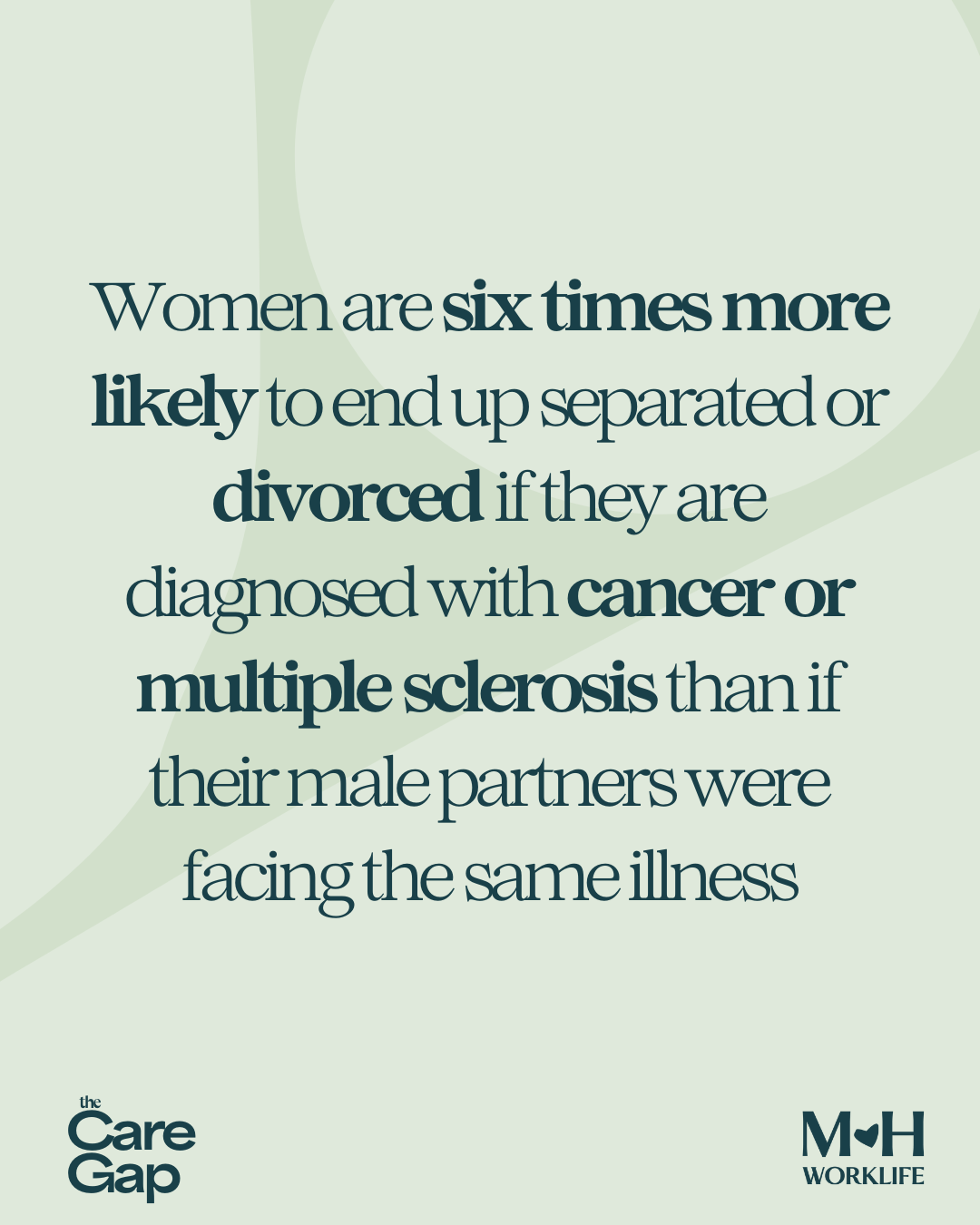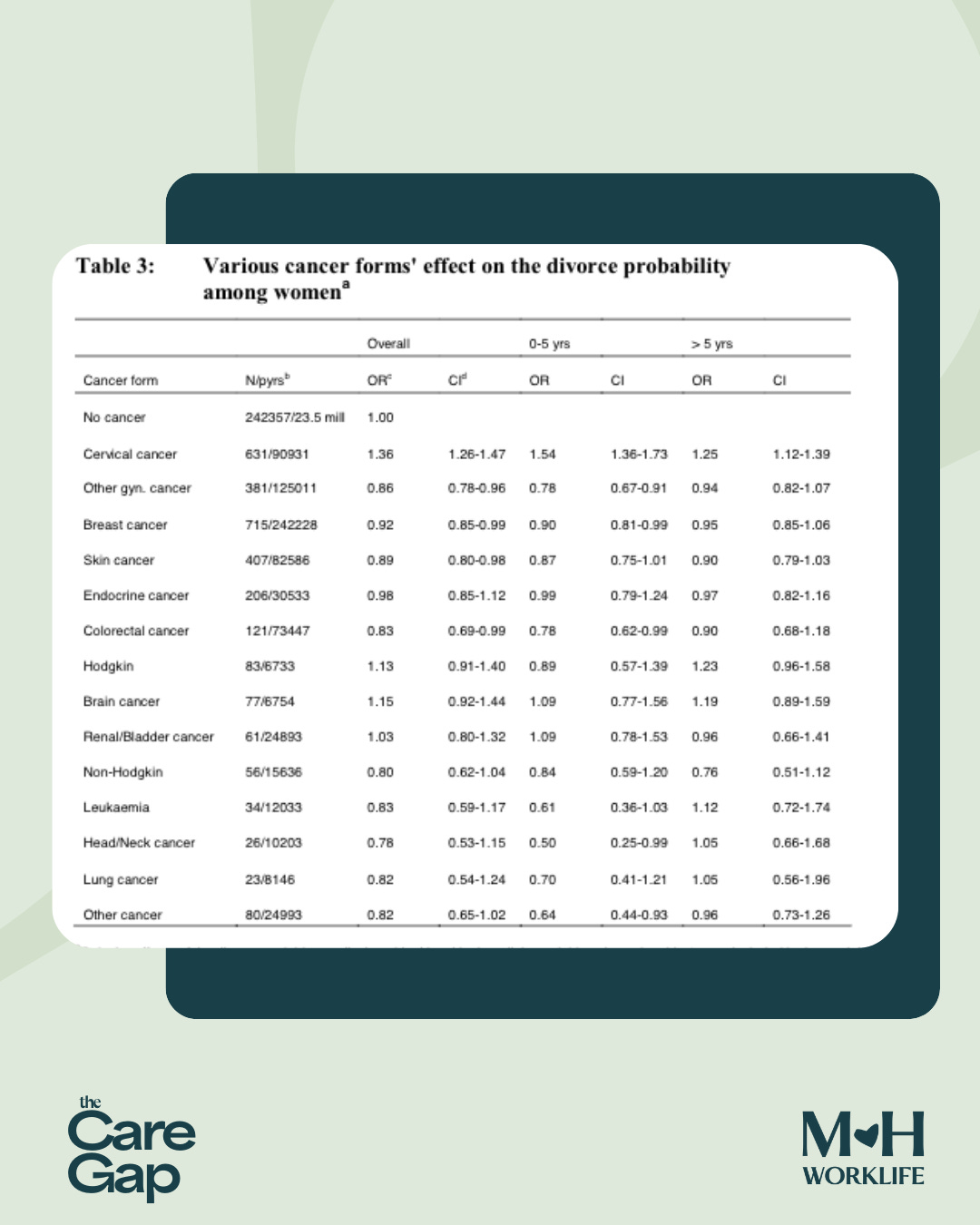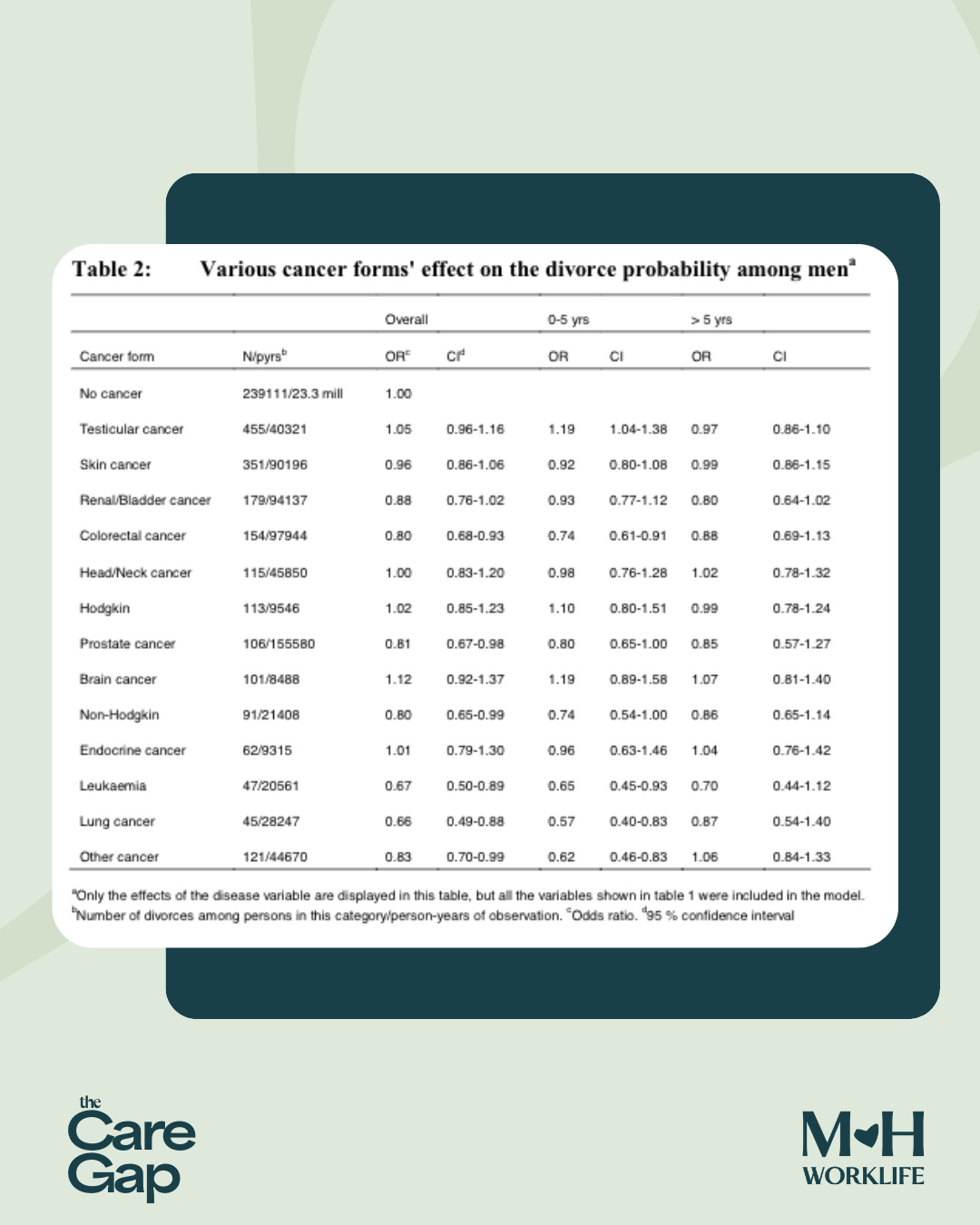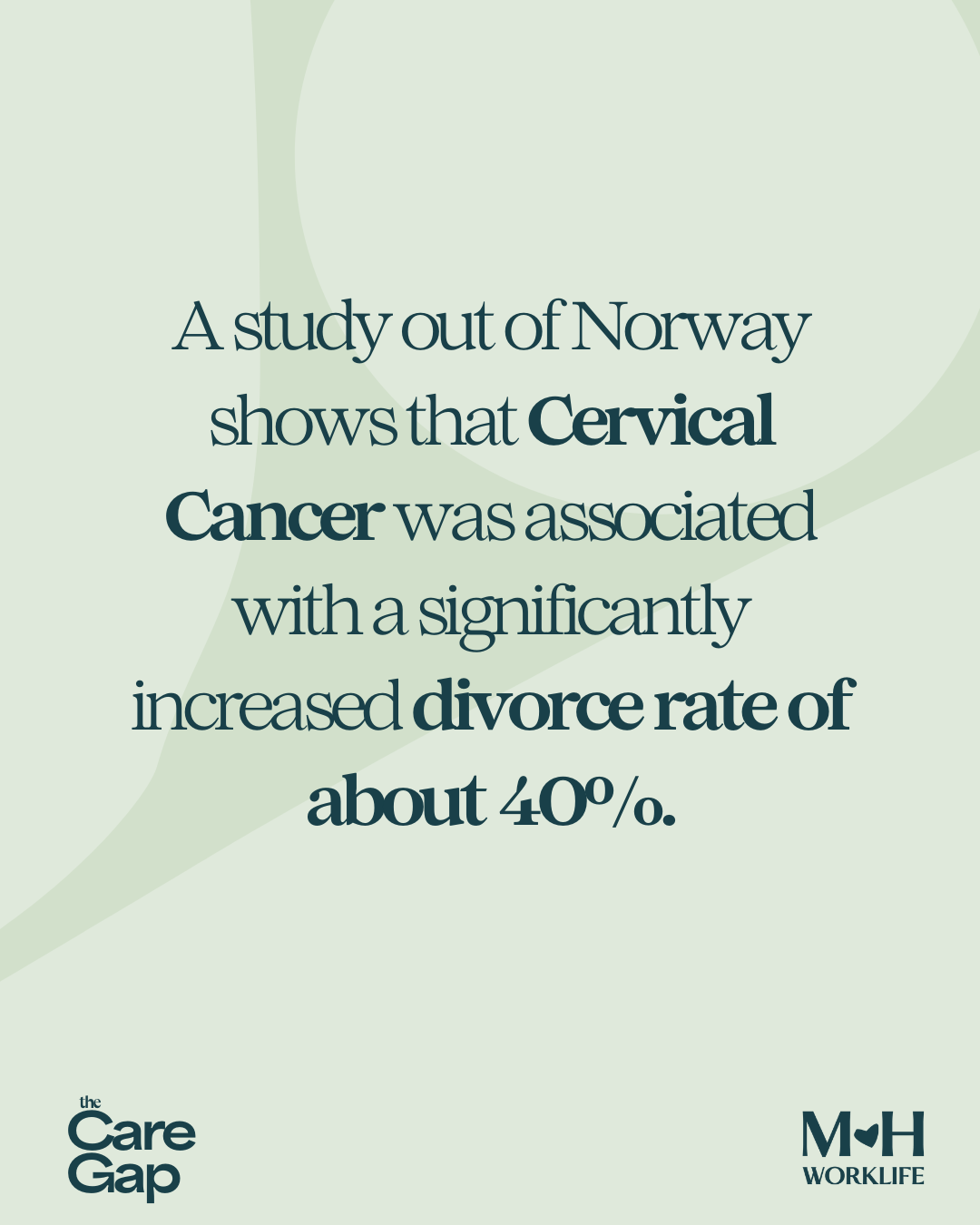Last week, prior to Kate Middleton’s announcement, I had shared that women, at a stunning rate of 70% initiate divorce compared to men at 30% which seems counterintuitive in a society where men historically have been the decision-makers. One of the biggest driver of this is obviously the care load, women are providing more care in the home that affects their physical, emotional, and social wellbeing. And when their own needs are not being met, they are forced to initiate divorce. It is important for men to not only recognize the emotional and physical labor of women, but also reduce the burden to keep a happy home. When we posted this on Instagram, we got a variety of responses. A follower responded saying “Coz working women are tired of men who contribute little to no childcare and housework. Both are working full-time but women still have to do the work after her day job.” One woman said “My ex-husband initiated the divorce, clearly wanted the divorce but I was the one who filed because he just couldn’t get his sh*t together to actually do the damn thing….” The team at Hello Divorce commented saying “we see this too often where women file for divorce even when they weren’t necessarily the one who wanted or initiated the divorce.” That was a very interesting insight.
However, following the Princess of Wales announcement, I found an even more compelling statistics, which came as a surprise to me - according to a study, men are six times more likely than women to initiate separation or divorce following a cancer or life-threatening diagnosis. The study confirmed earlier research of a divorce or separation rate among cancer patients of 11.6 percent, similar to the general population, but found the rate jumped to 20.8 percent when the woman was sick versus 2.9 percent when the man was ill. Cervical cancer was associated with a significantly increased divorce rate of about 40%.
If you need more proof, search on google and these headlines will come up:
“I survived cancer, but now I’m afraid my husband resents me.”
“My husband left me after 25 years because I have cancer - I’m devastated.”
“The men who leave their spouses when they have a life-threatening illness”
“Love Lost: The effects of cancer on marriage and relationships”
So what happens when men have cancer? A study out of Norway, shows that men with cancer actually see lower divorce rate. Married men with a cancer of any form, diagnosed at any time, had a divorce rate that was 8% lower than that of men without a cancer diagnosis.
So let’s dig in, why do men leave in the middle of a life-changing diagnosis.
Not all men are ready or equipped to provide care while taking the lead on caregiving, which can be physically and mentally grueling. This historically has been defined as a woman’s job, and so men hesitate to step into care especially when its for a partner that typically provides care. In fact, some studies show that men still expect that their partner will provide care even when they are sick, and especially, if their condition isn’t so pronounced that they can’t complete a task. Studies on women with breast cancer show that they tend to feel guilt for burdening their partner, and overcompensate. They set boundaries around what help they are willing to accept and continue to do what housework they can, while also giving emotional support to them. This to me is wild! I’d love to hear more if you’ve experienced anything similar.
Why Do Men Leave?
(+ my gender rudimentary classification in the Low, Neutral, or High category)
Low - Men experience this factor significantly less than women in the context of a partner's cancer diagnosis.
Neutral: This factor equally affects men and women, with no significant gender difference in its impact.
High: This factor is more commonly or intensely experienced by men compared to women in this context.
Emotional Unpreparedness: Some men may feel emotionally unprepared to deal with the severity and reality of a cancer diagnosis in a partner. The fear and uncertainty that accompany such news can be overwhelming, leading to avoidance or withdrawal as coping mechanisms. But women feel this way as well, so I think we will classify this as Neutral.
Traditional Gender Roles: Societal expectations often place men in the role of the provider or protector. When faced with a situation like a partner's serious illness, which they cannot "fix" or protect them from, it can lead to feelings of helplessness and inadequacy, sometimes resulting in distancing themselves from the situation. I would classify this as High.
Caregiving Challenges: The demands of caregiving can be intense and relentless, especially in the case of a serious illness like cancer. Not all individuals may feel equipped to take on such a role, leading to stress, resentment, or burnout, and ultimately, the decision to leave. I would also classify this as a High, men are absolutely unprepared for caregiving in most societies, again, there will be exceptions.
Lack of Caregiving Support: Men might not seek or receive the same level of social support as women for their caregiving roles. The lack of an emotional outlet or support network can lead to increased stress and isolation, contributing to the breakdown of the relationship. Classifying this as a High as well, a lot of men do not receive support from their fellow male friends especially.
Impact on Intimacy and Identity: Cancer treatments can lead to changes in physical appearance, sexual health, and overall energy levels, which can affect intimacy. Some men might struggle with these changes, not just physically but also in how they perceive their partner and the dynamic of their relationship. I would classify this as a Neutral because both men and women struggle with this one. Testicular cancer is the #1 reasons women leave men after a cancer diagnosis.
Financial Strain: The financial burden of cancer treatment can be significant. The stress of medical bills, potential loss of income, and the uncertainties of the future can put immense pressure on relationships, sometimes leading to separation or divorce. This I’d classify as Neutral as well, this affects both gender equally.
Global Care Memo
USA: Childcare benefits more than pay for themselves in a new report from BCG and MomsFirst
The ‘Always On, Always In’ Era Is Over. The live-to-work ethic has flipped. Now people want work-life balance and that’s transforming not just workplaces but towns and cities.
A millennial and her new husband moved in with her parents. They all still live in her childhood home 11 years later. They are cashing in hard on childcare.
UK: Labour won’t commit to Government’s new childcare plan for 30 free hours Ministers have previously refused to confirm if the pledge can be delivered on time due to staffing shortages
Nigeria: Substituting quality elder care for befitting burials - Though the children of the deceased might be hand-in-glove with poverty, they don’t mind borrowing heavily to give their departed – either father or mother – befitting burials.
Australia: Extends Paid Leave To Six Months. Australia’s Senate just passed legislation on Monday to extend its total paid leave offered to new parents to 26 weeks, instead of the current 20 weeks, beginning in 2026.
The Care Gap is written by Blessing Adesiyan, Founder & CEO of MH WorkLife and Executive Director, Caring Africa where she is on a mission to close the care gap for women, workplaces, and economies. Follow @blessing.adesiyan @mhworklife @caringafrica for more.







